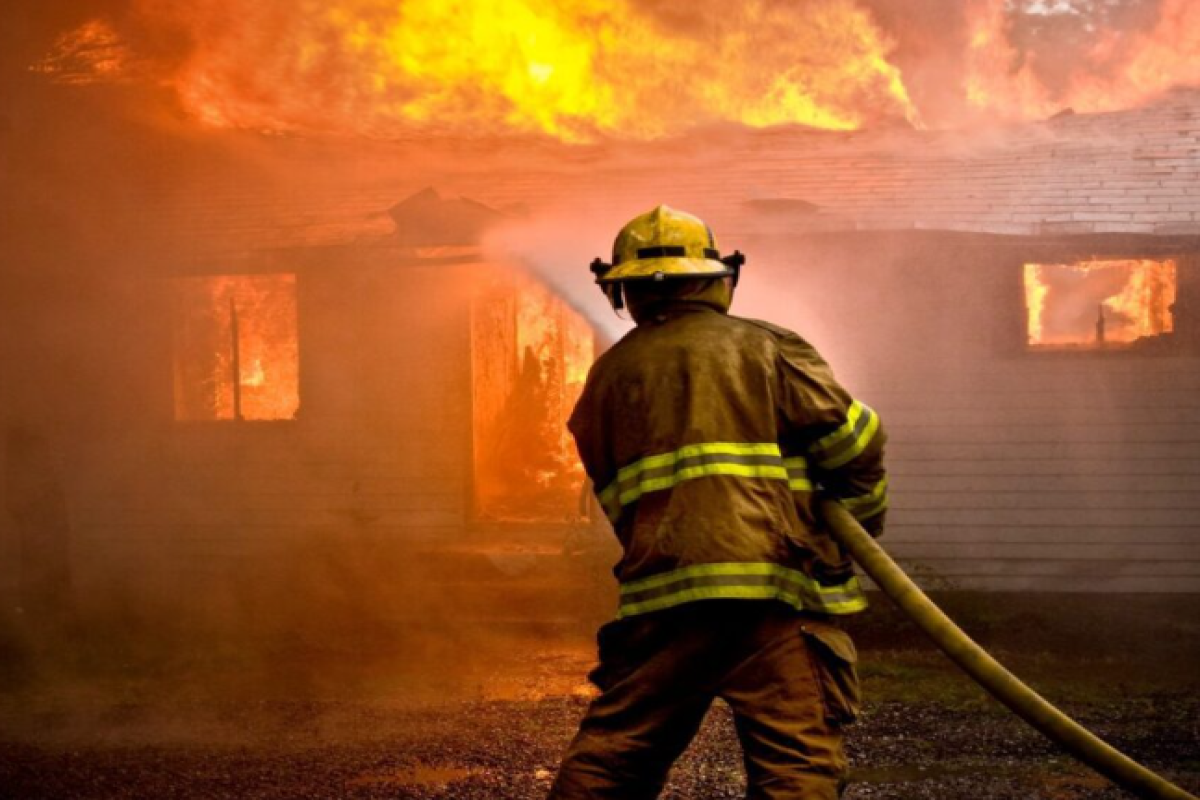What is Fire Insurance? Your Essential Shield Against Catastrophe
Fire insurance is a specialized, crucial type of property insurance designed to provide a financial lifeline when fire, one of the most devastating and unpredictable perils, causes destruction. It is much more than just a backup plan; it is a fundamental tool for risk management that ensures you have the capital to rebuild your life or business after a catastrophic loss.
In many cases, the basic fire coverage included in a general Homeowner's or Commercial Property policy is bundled with other protections. However, understanding the core components of Fire Insurance—what it covers, what it excludes, and the conditions you must meet—is essential for every property owner.
What Fire Insurance Covers (The Inclusions)
🌍 Need tailored insurance coverage?. Whether it is marine, motor, or property?. Get a free quote at Safeguard Insurance Brokers.
A modern fire insurance policy typically goes beyond covering the flames themselves. It compensates for the financial cost of repairing or replacing property due to fire and a range of "Allied Perils."
1. Direct Damage
- Structure: Pays for the repair or rebuilding of the physical structure, including the building, foundation, walls, roof, and fixed installations.
- Contents: Covers the loss or damage to your personal belongings, furniture, machinery, inventory, stock, and equipment located within the insured premises.
- Consequential Damage: Crucially, it typically covers damage caused by efforts to control the fire, such as smoke damage and water damage from sprinklers or the fire brigade.
2. Allied Perils (Extended Coverage)
💼 Partner with InsureGhana to grow your insurance business. Learn More
Most policies include coverage for other related events that cause similar destruction:
- Lightning: Damage caused by lightning, even if it doesn't result in a fire.
- Explosion/Implosion: Damage from the explosion of domestic items like gas cylinders or boilers.
- Aircraft Damage: Damage caused by aircraft, other aerial devices, or articles dropped from them.
3. Associated Costs
- Debris Removal: The cost of clearing the site and removing the wreckage after the fire.
- Temporary Living Expenses: For homeowners, this covers the cost of temporary accommodation while the insured property is being repaired.
- Business Interruption (Optional Add-on): For commercial clients, this vital extension covers the loss of income suffered while the business is non-operational due to fire damage.
What Fire Insurance Does Not Cover (Exclusions)
🟡 Need vehicle insurance? Compare quotes from top insurers. Contact us at. Safeguard Insurance Brokers
Exclusions define the limits of your policy. If a loss is caused by an excluded peril, your claim will be denied. Common exclusions include:
- Willful Act: Any loss caused intentionally or due to the willful misconduct of the insured party (e.g., arson).
- Indirect Loss (Consequential): Damage that does not directly stem from the fire, such as loss of market share, loss of data, or loss of potential profits (unless a Business Interruption clause is purchased).
- War and Nuclear Risks: Damage resulting from acts of war, invasion, civil war, or nuclear contamination.
- Internal Electrical Faults: Damage to an electrical machine or appliance caused by its own short-circuiting or overrunning, unless the resulting fire spreads and damages other property.
- Unoccupied Premises: Loss that occurs if the insured building is left vacant or unoccupied for an extended period (often 30-60 days), as this increases the risk.
Understanding Warranties: The Policyholder's Promise
Warranties are arguably the most critical and least understood policy conditions. They are promises made by the policyholder that must be strictly complied with for the duration of the policy.
🌍 Explore reinsurance insights and trends across West Africa at InsureGhana Insights.
The Impact of a Warranty
In insurance, a warranty is a condition precedent to the contract. If you breach a warranty, the insurer may have the right to void your entire policy—even if the breach had nothing to do with the fire.
| Warranty Type | Requirement | Potential Breach Example |
|---|---|---|
| Alarm/Security Warranty | You warrant that the security alarm will be set whenever the business is closed. | A fire occurs on a Sunday when the alarm was not set. The claim could be rejected. |
| Fire Safety Warranty | You warrant that all fire extinguishers and suppression systems are serviced annually. | An annual maintenance check is missed before a fire occurs. |
| Stock/Hazard Warranty | You warrant that no hazardous materials (e.g., flammable liquids beyond a small quantity) will be stored on site. | You begin storing unauthorized chemicals, which causes a fire. |
Who Needs Fire Insurance to Protect Their Investment?
Fire insurance is a mandatory component of financial stability for anyone with a significant physical asset or a financial interest in one.
- Homeowners & Landlords: To protect the value of the residential property and, for landlords, to safeguard their rental income.
- SMEs and Manufacturers: Fires can wipe out machinery, stock, and the premises in a single event. For these businesses, fire insurance is the difference between recovering and permanent closure.
- Lending Institutions: Banks, mortgage companies, and other financiers require fire insurance because they have a financial stake (the loan) in the property. The policy ensures their collateral is protected.
- Tenants: While the building owner insures the structure, a tenant must purchase Contents Insurance (often an extension of fire insurance) to protect their own furniture, clothing, and equipment.
Disclaimer: "The views expressed on this site are those of the contributors or columnists, and do not necessarily reflect insureghana's position. insureghana.com will not be responsible or liable for any inaccurate or incorrect statements in the contributions or columns here."

Insight
Expert insights and data-driven analysis from Ghana’s leading insurance knowledge hub

